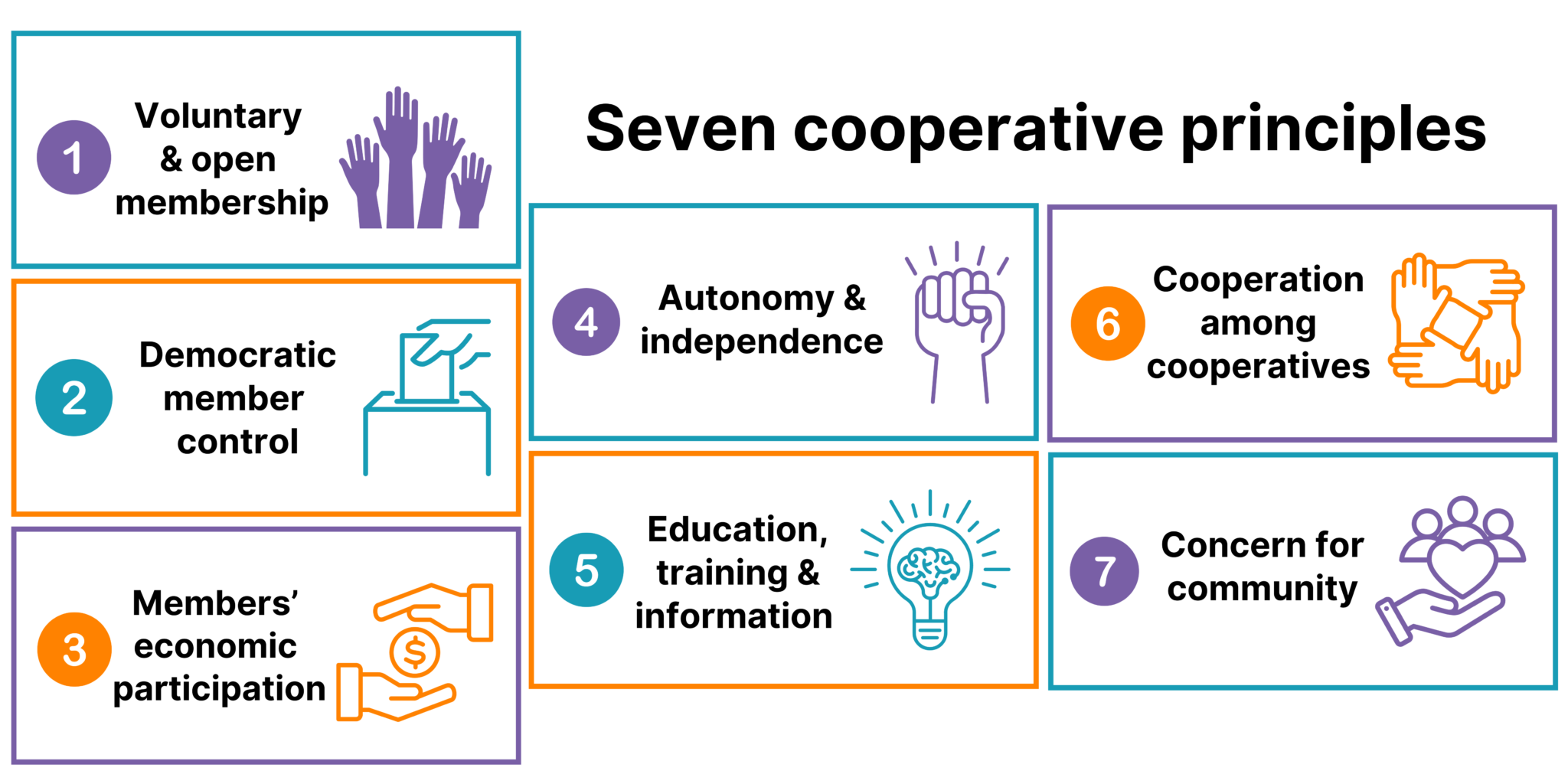Why A Cooperative?
We're a worker cooperative, which means that our clinicians are co-owners of the practice and have an equal voice in how it's run. This structure allows us to prioritize the needs of our community, our clients, and our clinicians, and to create a supportive and empowering work environment.
Co-operatives help counterbalance the massive growth of inequality between the world’s rich and poor; an issue that, if not addressed, has major economic, social, cultural, environmental, and political consequences. A worker-cooperative is an entirely employee-owned and managed business, which means your provider has complete control of their own practice. Profits are not diverted to wealthy investors or corporate executives, and the savings from this model are used for the benefit of the providers, clients, and our community!
Values and Principles
The cooperative principles act as guidelines by which we put our values into practice.
“Cooperatives are based on the values of self-help, self-responsibility, democracy, equality, equity, and solidarity.
In the cooperative tradition, we as members believe in the ethical values of honesty, openness, social responsibility and caring for others.”
-International Cooperative Alliance
From the United States Federation Of Worker Cooperatives:
1st Principle: Voluntary and Open Membership
Co-operatives are voluntary organisations, open to all persons able to use their services and willing to accept the responsibilities of membership, without gender, social, racial, political or religious discrimination.
2nd Principle: Democratic Member Control
Co-operatives are democratic organisations controlled by their members, who actively participate in setting their policies and making decisions. Men and women serving as elected representatives are accountable to the membership. In primary co-operatives members have equal voting rights (one member, one vote) and co-operatives at other levels are also organized in a democratic manner.
3rd Principle: Member Economic Participation
Members contribute equitably to, and democratically control, the capital of their co-operative. At least part of that capital is usually the common property of the co-operative. Members usually receive limited compensation, if any, on capital subscribed as a condition of membership. Members allocate surpluses for any or all of the following purposes: developing their co-operative, possibly by setting up reserves, part of which at least would be indivisible; benefiting members in proportion to their transactions with the co-operative; and supporting other activities approved by the membership.
4th Principle: Autonomy and Independence
Co-operatives are autonomous, self-help organisations controlled by their members. If they enter to agreements with other organisations, including governments, or raise capital from external sources, they do so on terms that ensure democratic control by their members and maintain their co-operative autonomy.
5th Principle: Education, Training and Information
Co-operatives provide education and training for their members, elected representatives, managers, and employees so they can contribute effectively to the development of their co-operatives. They inform the general public – particularly young people and opinion leaders – about the nature and benefits of co-operation.
6th Principle: Co-operation among Co-operatives
Co-operatives serve their members most effectively and strengthen the co-operative movement by working together through local, national, regional and international structures.
7th Principle: Concern for Community
Co-operatives work for the sustainable development of their communities through policies approved by their members.


